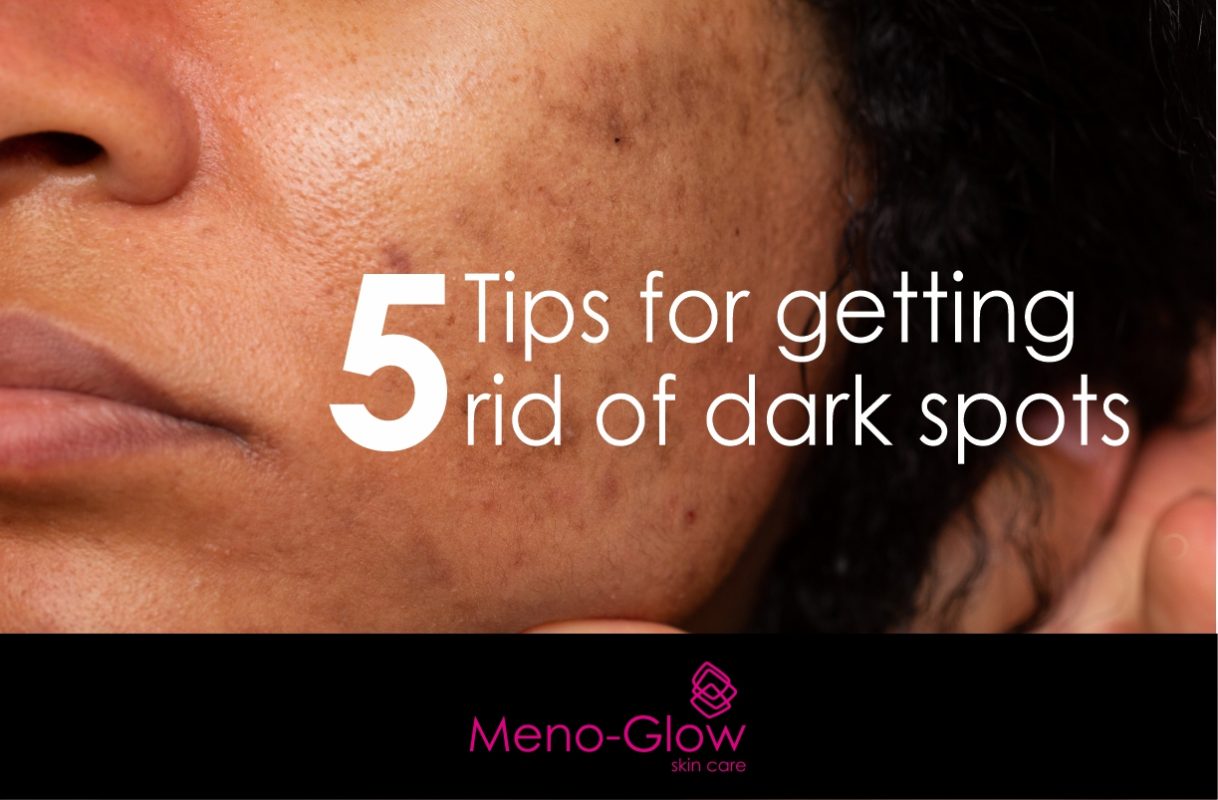There are 34 symptoms of menopause. Each woman has a different menopause experience, so won’t necessarily experience all of them. But understanding all the different signs will help you to manage how menopause feels for you.
Every woman’s menopause is different. There are at least 34 symptoms of the menopause (and counting), and every woman will experience a different range of symptoms. Some are more common than others. So what are the 34 symptoms of menopause?
What are the symptoms of menopause and at what age?
Menopause itself is just the moment in time, marking 12 months of no periods. The average age of menopause is 51, but symptoms can start several years before that. Symptoms typically start showing at an average age of 45 years. This is your perimenopause.
How long does menopause last?
The perimenopause can last from 12 months to up to five years in most women. From this time, your ovaries release less estrogen than in previous years. Menopause symptoms may appear earlier than your mid 40s, especially if you have undergone chemotherapy or had a hysterectomy. The postmenopausal phase is where menopause symptoms slowly subside.
What are the 34 symptoms of menopause?
1. IRREGULAR PERIODS
Irregular periods are among the earlier symptoms of perimenopause in most women. As your egg production decreases, your hormone levels drop too. At times, you may get signs of premenstrual syndrome such as irritability, bloating, and breast tenderness but fail to get your periods.
- HOT FLUSHES
Hot flushes are also early symptoms that you are approaching menopause. A red neck and face characterise the flashes in up to 72% of women. When you have hot flushes, your body suddenly overheats, and you experience sweating and night sweats because the hormones responsible for controlling your body’s temperature are low. Spicy foods and hot drinks usually trigger symptoms of hot flushes.
- VAGINAL DRYNESS
During perimenopause and after menopause, the natural lubrication of your vagina is inadequate. Estrogen is responsible for vaginal lubrication. When you are in the menopause years, your eggs fail to produce enough estrogen to lubricate the vagina, and as a result, you experience vaginal dryness. The dryness can make sex uncomfortable and sometimes painful.
- NIGHT SWEATS
Night sweats are associated with difficulties in sleeping for most menopausal women. Night sweats are a result of hot flushes you experience at night.
- MOOD SWINGS
Studies have shown that about 27% of women experience mood swings. Many women experience anxiety as well. The mood swings are similar to mood changes you may experience during your periods but tend to be extreme.
- BLOATING
Bloating is an early sign that you are approaching menopause. Bloating is a common perimenopausal symptom, especially if it persists after you complete your periods.
- SORE BREASTS
Feeling soreness in your breasts is a common symptom in perimenopause. It is the same as the sore you experience when you have your period or are pregnant.
- WEIGHT GAIN
Weight gain during menopause, especially around your middle, is caused by the hormonal changes your body is going through. It is not caused by Hormone Replacement Therapy (HRT). Exercise and a healthy diet can help you combat it.
- CHANGES IN LIBIDO
While most women report having a decrease in their libido, some have reported having increased libido. The changes in libido are, therefore, different from one woman to another. Decreased libido is said to be associated with gaining weight. It can lower your sex drive by making you feel uncomfortable with your body. Exercising and eating healthy can, however, make you embrace your body again.
- HEADACHES
If you experienced headaches during your menstrual period, it is common to get headaches during menopause too. Hormones released by your ovaries may also affect chemicals in the brain related to headaches. Headaches are less likely to occur if your hormones are steady. In the menopause years, however, the hormones fluctuate, explaining why headaches are more frequent in menopause.
- PAIN IN JOINTS
Estrogen is responsible for strengthening bones and protecting them from inflammation. As the levels of the hormone decrease, your joints become susceptible to inflammation.
- ELECTRIC SHOCKS
Electric shocks are a menopausal symptom that occur suddenly and are due to the inappropriate firing of neurons. You are likely to experience electric shocks after hot flushes.
- BURNING TONGUE
A burning tongue is due to dry mouth that may be due to reduced levels of estrogen. Just like the mucosa of the vagina, the mucosa of the mouth has estrogen receptors that contribute to saliva formation. Reduction in your estrogen levels during menopause leads to reduced saliva production.
- PROBLEMS WITH GUMS
Gum problems during menopause can cause your mouth to taste like metal. Gum problems affect 10-40% of women.
- DIGESTIVE ISSUES
Digestive issues may be excessive flatulence, bloating, nausea and abdominal cramps. The problems arise from elevated cortisol levels as your estrogen decreases, since estrogen is responsible for maintaining healthy cortisol levels.
- DRY AND ITCHY SKIN
When your estrogen levels decrease during menopause, collagen also decreases. Collagen is a protein in the body that strengthens your ski and keeps it moist. When it drops, your skin becomes dry and itchy.
- ANXIETY
Anxiety affects one out of three menopausal women. It is common in women who also experience mood swings.
- TINGLING SENSATION IN THE EXTREMITIES
While most women report experiencing tingling sensations in their fingers and toes, it is also normal to experience a burning sensation or some numbness. These changes are due to a drop in your estrogen levels that affects your central nervous system, which relays signals to the rest of your body.
- SLEEPING DIFFICULTIES
Insomnia is common because of hot flushes that can occur at night. The flashes may lead to night sweats that make it uncomfortable for you to sleep.
- DIFFICULTIES IN CONCENTRATION
Your brain makes energy with the aid of estrogen by burning glucose to help you concentrate while carrying out your daily activities. When your estrogen levels decrease, the brain is no longer able to make enough energy to help you focus, leading to you experiencing concentration difficulties.
- DIZZINESS
Sudden unexplainable dizziness during menopause is said to be associated with a drop in your levels of estrogen.
- FATIGUE
Feeling exhausted is also common during menopause. Research shows that 25% of women experience fatigue during menopause.
- LOSS OF HAIR
Age may affect your hair volume and also make it thin. However, menopause accelerates the two and also makes you lose hair faster.
- MEMORY LAPSE
Temporary forgetfulness is a common symptom you will experience in later stages of menopause. It is associated with fatigue, but you can rectify it by doing cognitive exercises to enhance your cognition.
- BRITTLE NAILS
Your nails may break easily during menopause. Estrogen is essential in keeping the keratin layer, which strengthens your nails, strong. When it reduces, the keratin layer weakens to cause brittle nails in many women in their menopause.
- TIGHT MUSCLES
Strain in your muscles is often associated with stress. Since menopause is associated with symptoms like anxiety and stress, your muscles may tighten. Yoga and meditation can, however, relieve stress and help your body relax for your muscles to loosen.
- STRESS INCONTINENCE
The inability to control your bladder when you lift heavy items off the ground or cough is called stress incontinence. During menopause, physical activities can cause urine leakage because they stress your bladder.
- CHANGES IN BODY ODOUR
The natural body scent changes when you reach menopause. These changes may be due to hormonal changes and frequent sweating associated with hot flushes.
- IRRITABILITY
Fluctuations in your hormones are associated with changes in mood at menopause. Try relaxing activities and exercise, or meditating to help control the changes in your moods.
- ALLERGIES
Since hormones and your immune system are linked, finding yourself allergic to new things is common when you are in menopause.
- IRREGULAR HEARTBEAT
You may notice changes in your heartbeat, such as palpitations. Similar to the tingling sensations you may experience during menopause, irregular heartbeats occur because the drop in your estrogen levels may cause misfiring of neurons.
- DEPRESSION
Studies show that women younger than 45 years are less likely to be depressed compared to those who are older. Due to the mood changes you experience in menopause, such as sadness, you might experience depression.
- PANIC DISORDER
As aforementioned, menopausal women are prone to anxiety due to hormonal changes. Anxiety may contribute to panic attacks. However, panic attacks are not a common symptom of menopause.
- OSTEOPOROSIS
Osteoporosis is a condition associated with weak bones that are prone to fractures. A significant function of estrogen is to maintain healthy and strong bones. Your bones, therefore, weaken when your estrogen levels lower during menopause.
WHAT IS HRT?
Hormone Replacement Therapy, HRT, is the medical treatment for menopause. Hormone therapy is, the most recognised method of managing menopausal symptoms and replacing deficient hormone levels. It helps not just with symptoms but with future health issues caused by low hormone levels, such as osteoporosis and heart disease.
Since the cause of menopausal symptoms arises from low levels of the hormones estrogen and progesterone, hormone therapy can help alleviate the symptoms.
WHAT IS THE BEST NATURAL REMEDY FOR MENOPAUSE?
There are several natural remedies that some women use for combating specific symptoms menopause brings. Always let your doctor know if you are taking any, because they can affect more traditional medicines.
Black cohosh, flax seeds, soy, vitamin E, exercising, yoga and meditation have been adopted by many women to lessen menopause symptoms.
However, each remedy aims at relieving a particular symptom. Flax seed, for example, is a useful remedy for hot flushes, while vitamin E relieves vaginal dryness.
A lot of women use black cohosh. It aims at relieving hot flushes and night sweats of menopause. Black cohosh is a herb, and its dietary supplements are from a powder of its roots.
By Saska Graville
SOURCE: https://mpoweredwomen.net/medical/what-are-the-34-symptoms-of-menopause/



